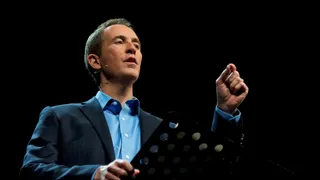The Shift In Child Rearing That Has Destroyed The American Family

What happened to child rearing in America between 1965 (the publication of Between Parent and Child, by New York psychologist Haim Ginott) and 1980 (the publication of How to Talk So Kids Will Listen and Listen So Kids Will Talk by family counselors Adele Faber and Elaine Mazlish) is known as a paradigm shift, defined as a fundamental change in the understandings and procedures that inform a certain practice.
During those fifteen years, the needle of child rearing swung 180 degrees, such that pre-1965 and post-1980 child rearing have next to nothing in common. Mental health professionals replaced elders as the go-to experts. Biblical principle yielded to psychological theory. The previously adult-centric family became child-centric. The supposed importance of children possessing self-esteem replaced respect for others. Chores were squeezed out of the picture by after-school and weekend activities. Parent-child relationship eclipsed parent authority. Child rearing became “parenting.”
The most dramatic change was that good parenting became defined as properly understanding and responding to the feelings of the child. The new experts told parents that a child’s feelings were a barometer of his psychological health, and that psychological health (which no one has ever figured out how to accurately measure) trumped every other consideration. The new rule became, in effect, “If you say something (communicate an instruction, decision, or position) or do something that causes your child emotional distress, you need to amend what you said or did and keep amending until your child is okay with it.”
Anyone with functional cognitive apparati should immediately realize that new rule put the emotionally-driven child (see Proverbs 22:15) in control of the family. The natural narcissism of many a child was suddenly untethered and allowed to run free, leading to the present-day ubiquity of the child-tyrant. To cover-up the fact that their advice had caused this growing problem, mental health professionals began assigning diagnoses and administering pharmaceuticals to the tyrants, as if antisocial narcissism was not sin, but a neurological phenomenon that could be corrected with chemistry.
The new emphasis on the feeling state of the child appealed primarily to women. Let’s face what we all know to be the case: women are more feelings-oriented than men, and profoundly so. Women have sixty-four emotional crayons; men have eight…at most. That is not a judgment. It is a well-known, albeit seldom discussed fact (albeit expressed metaphorically). There are advantages to having sixty-four emotional crayons and there are advantages to only having eight (and by the way, a biological male who claims to be a woman still has only eight).
Women came to believe that if (a) proper parenting is all about properly understanding and responding to a child’s feelings, then (b) they (women) were the only parents adequately equipped to do the job correctly. A logical conclusion to draw, if one accepts that child rearing is all about responding properly to a child’s feelings (a practice known today as “gentle parenting,” classes in which are attended exclusively by…guess who!).
Women began to adopt a proprietary view of child rearing, believing that proper outcomes depended on THEIR devotion, THEIR dedication, and THEIR doing. “Mothering” became a works-based cult-religion of sorts, the implicit understanding being that the more a mother did for her child, the better a mother she was, which is why women often complain that parenting wears them down to a nub.
Meanwhile, as did Adam when Eve bit the forbidden fruit, men stepped aside and allowed all this to happen. They abandoned their God-assigned role of family head and became, instead, parenting aides, there to run errands for the real parent and fill in temporarily when she needed a break.
And that is where the American family—secular and Christian—sits today. Mom and Dad have replaced husband and wife. The marriage has become like the Cheshire Cat…now you see it; mostly, however, you don’t. The kids run the circus. They’ve been taught, however unwittingly, that a life without soap opera (emotional hyperbole) is a life insignificant. And so, they produce soap opera after soap opera.
A recent Barna poll found that only 2 percent of Gen Z’ers and millennials possess a biblical worldview. Right! A biblical worldview is God-centric. The worldview that now prevails among America’s perpetually rising adults is ME/MY/MINE/MOI-centric.
God help us all.
Related Articles
Amy Travis | 11/15/2024
The Pastor Said What? Deception In Our Time
I think we should probably not throw out the Ten Commandments. But not everyone does.
Aaron Edwards | 11/12/2024
The Word of God is Already Weaponized
Bible believers are often labelled as 'disagreeable': but the Word of God is unapologetically designed to divide and defend.
John Rosemond | 11/8/2024
The Big Secret In Christian Families: Parents Should Not Be Child-Focused
Children should be oriented around the life of their parents, not the other way round.
Jared Moore | 10/31/2024
Francis Schaeffer and Fifty Shades of Grey
In an age of sexual perversion and redefined boundaries, what does it mean to honor the image of God within ourselves and in our relationships?
Michael Clary | 10/29/2024
Something Strange and Wonderful is Happening with Young Men
It seems like young men are starting to flock to Christianity. Here's how, and why.
Jennifer Harrison | 10/28/2024
Answering Kids’ Five Biggest Questions On Heaven And Angels
Kids have lots of questions about theology that most adults haven't thought about in a long time. Here's how to answer some big ones on the afterlife and the angelic.





